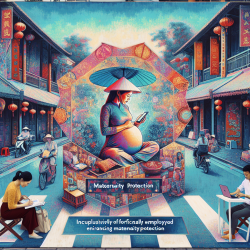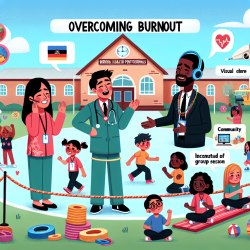The COVID-19 pandemic has had a profound impact on the mental health and wellbeing of students globally. A recent study titled “I do think that accessibility is a really major thing that has come [out] of [the] pandemic”: The lived experiences of resilience and health-related quality of life among a diverse sample of graduate students during the COVID-19 pandemic provides valuable insights into how resilience and accessibility can support graduate students' health-related quality of life (HRQOL).
The Importance of Resilience in Education
Resilience is a dynamic process that enables individuals to thrive despite adversity. The study highlights several factors influencing resilience among graduate students:
- Cultural Influences: Students from diverse backgrounds shared how cultural identity and community support bolstered their resilience. For instance, international students often found strength in navigating new cultural landscapes.
- Privilege and Power: Financial stability and supportive networks were identified as significant contributors to resilience. Conversely, academic power dynamics sometimes undermined student resilience.
- Life Stage and Past Experiences: Older students or those with prior adversities often demonstrated higher resilience, leveraging past challenges to navigate current ones.
Accessibility: A Silver Lining of the Pandemic
The shift to online learning during the pandemic has inadvertently improved accessibility for many students. The study found that:
- Remote Learning Benefits: Students with disabilities reported enhanced academic performance due to the flexibility and accessibility of online classes.
- Diverse Needs: While online learning benefited some, it also highlighted the need for tailored approaches to address varied student needs effectively.
Implications for Practitioners
Practitioners can draw several lessons from these findings to enhance their skills and support student wellbeing:
- Create Inclusive Spaces: Develop educational environments that recognize and accommodate diverse cultural backgrounds and abilities.
- Foster Resilience: Encourage practices that build resilience, such as mindfulness programs or peer support networks.
- Leverage Technology: Utilize technology to provide flexible learning options that cater to different needs, ensuring no student is left behind.
Encouraging Further Research
This study underscores the importance of understanding the nuanced experiences of diverse student populations. Practitioners are encouraged to engage in further research to explore the relationship between privilege, resilience, and accessibility in education.
To read the original research paper, please follow this link: “I do think that accessibility is a really major thing that has come [out] of [the] pandemic”: The lived experiences of resilience and health-related quality of life among a diverse sample of graduate students during the COVID-19 pandemic.










